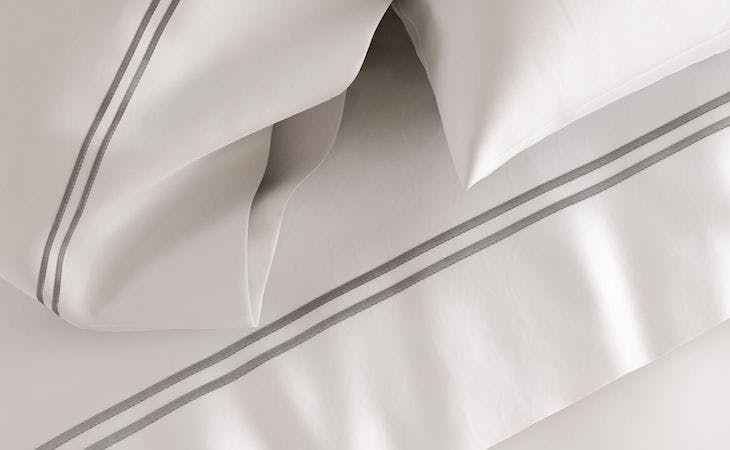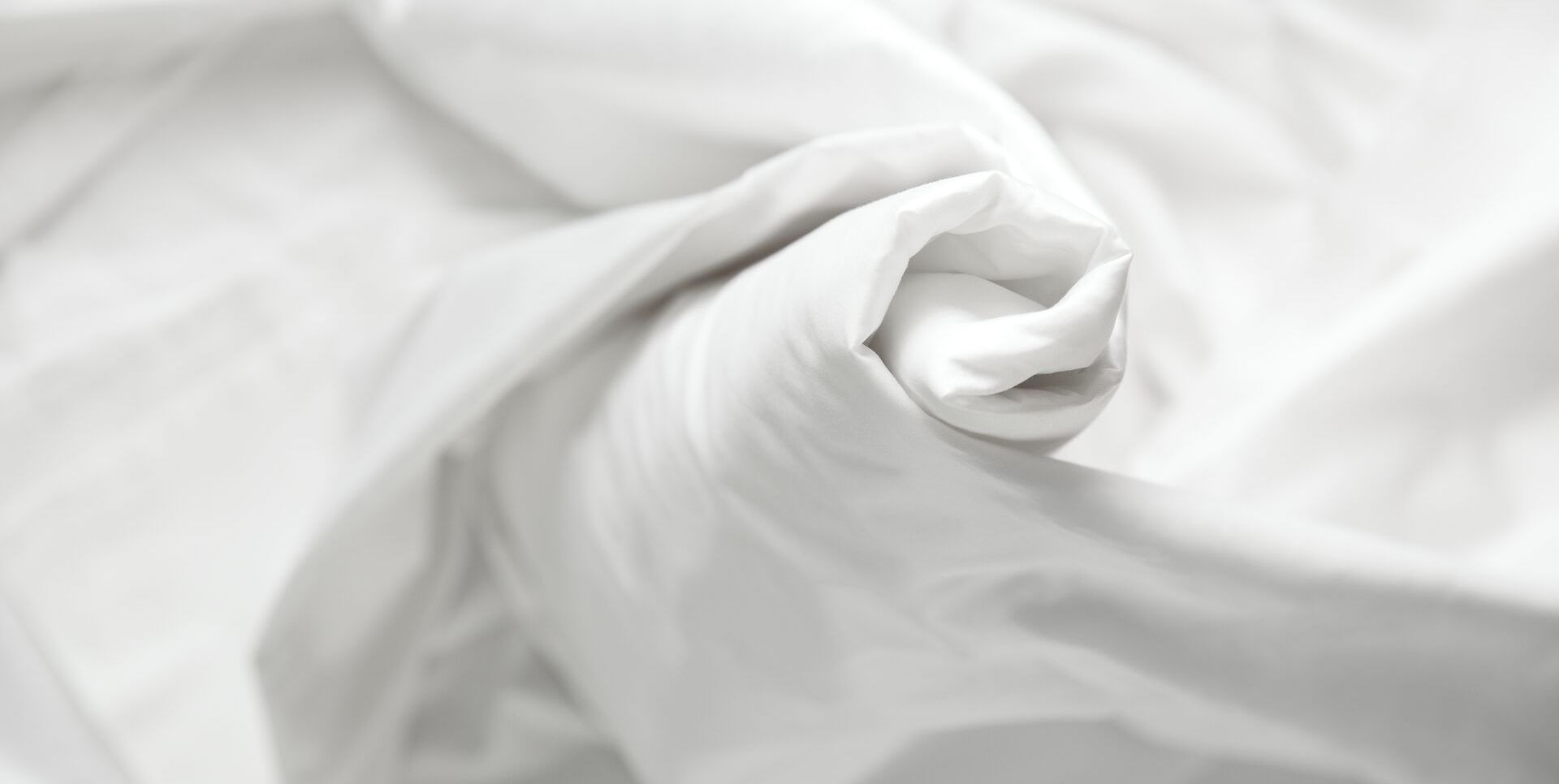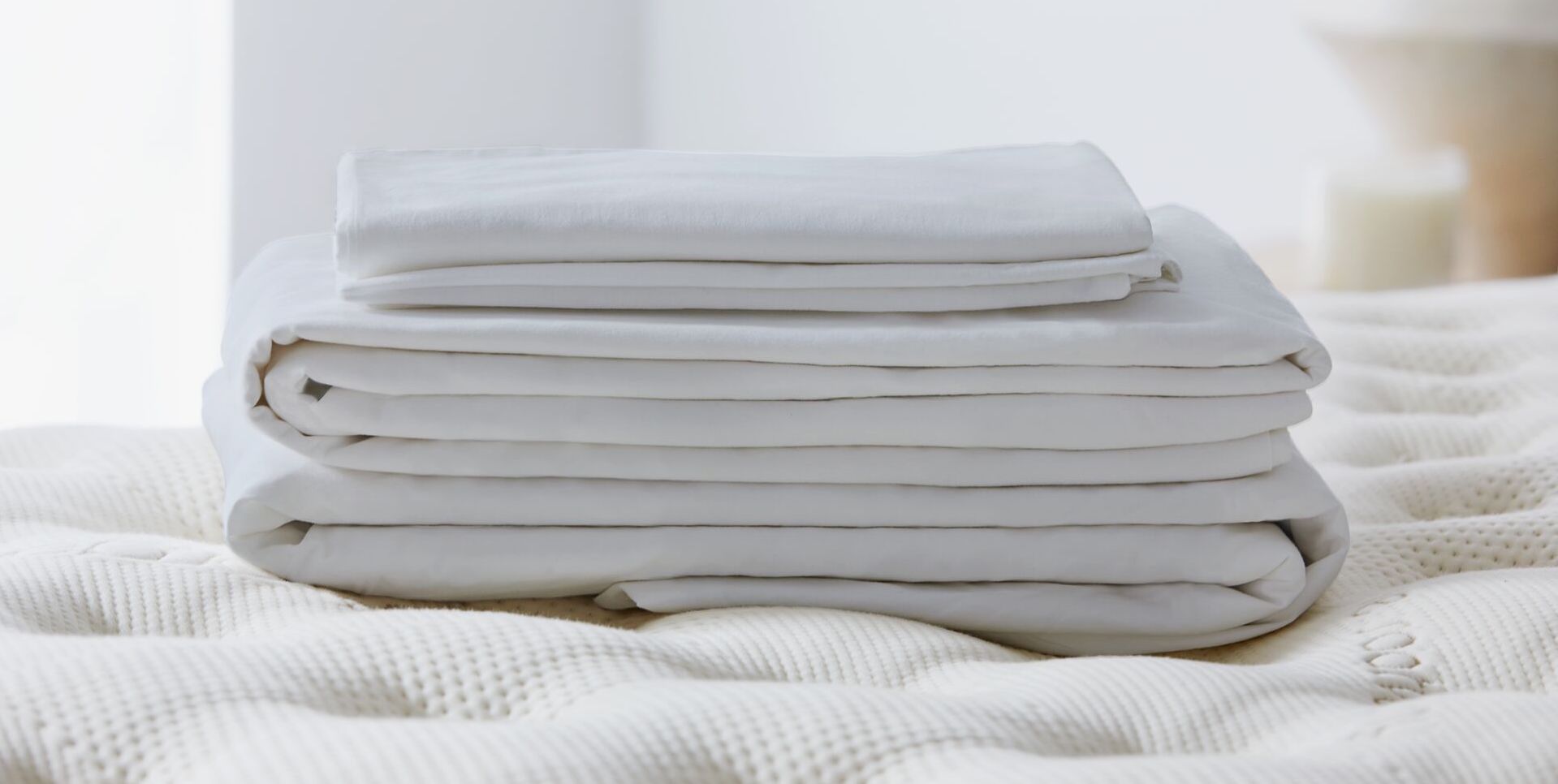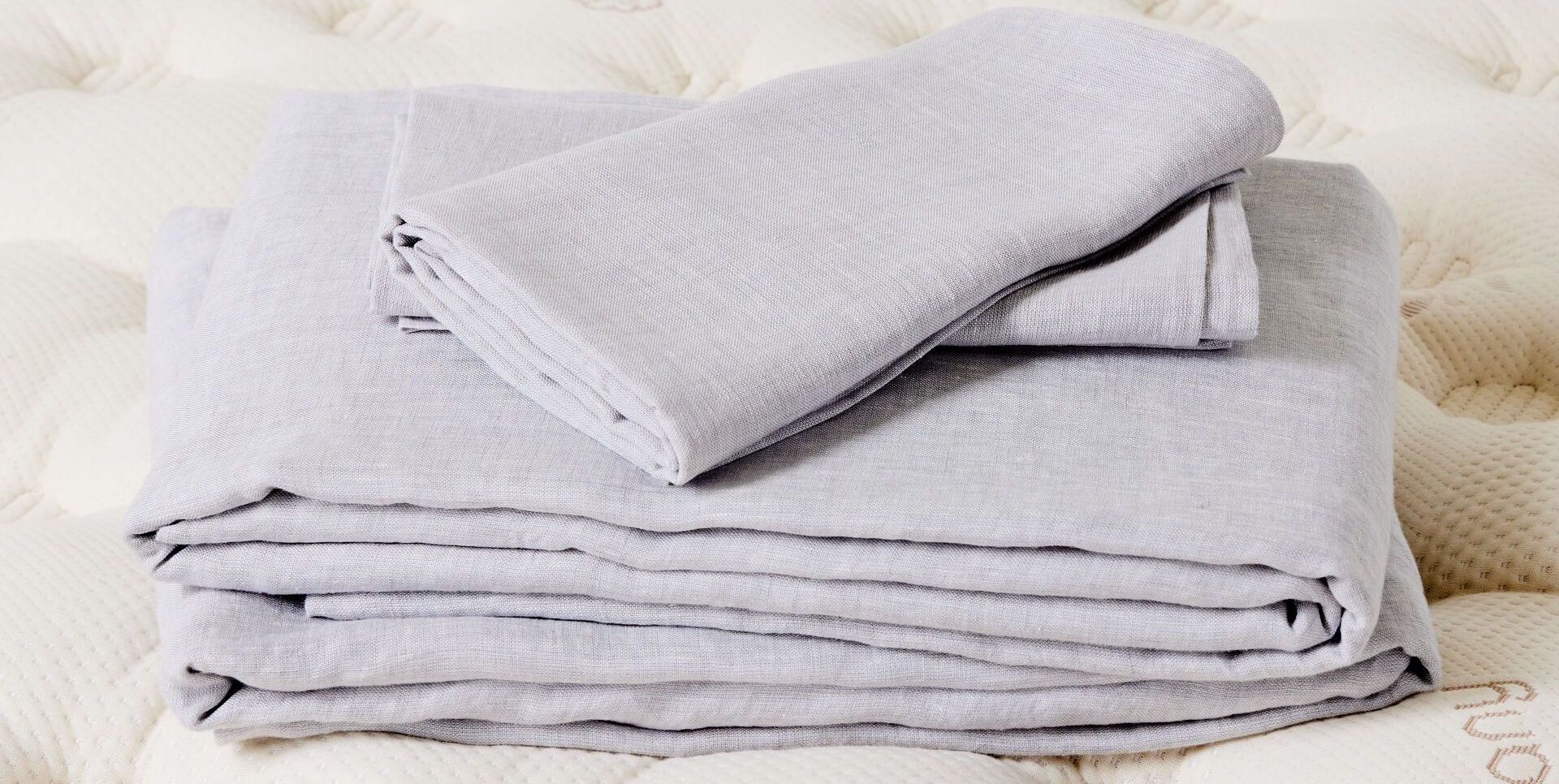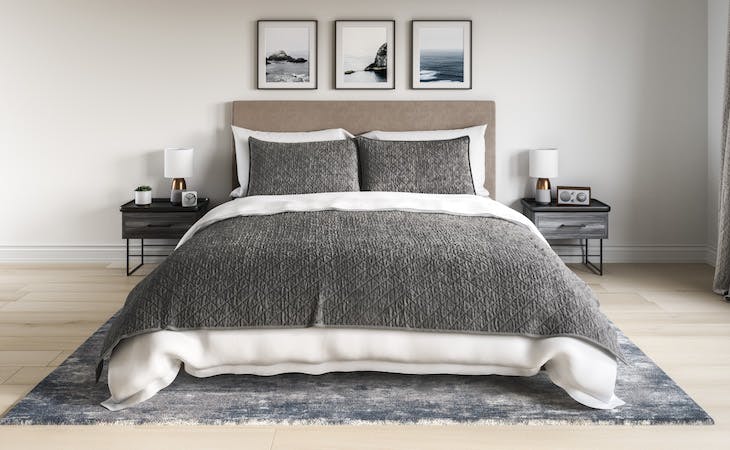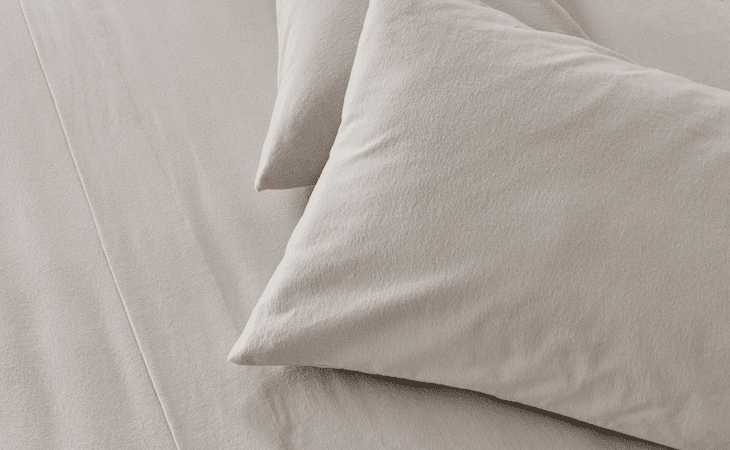When buying new sheets, what figure do you look at to gauge their quality? For most people, it’s thread count. Higher thread count in bedding has been associated with luxury for a long time.
However, a high thread count doesn’t always correlate to a high-quality set of sheets.
Let’s explore what thread count means, the ideal thread counts for different fabrics, and other considerations to make when buying a new set of bed sheets.
What are thread counts on sheets?
Thread count refers to the number of threads woven per one square inch of fabric. The thread count includes both horizontal (weft) and vertical (warp) threads.
For instance, if one inch of fabric has 150 vertical threads and 150 horizontal threads, the thread count number is 300. Thread count figures can range anywhere from 200 to 800 and even higher.
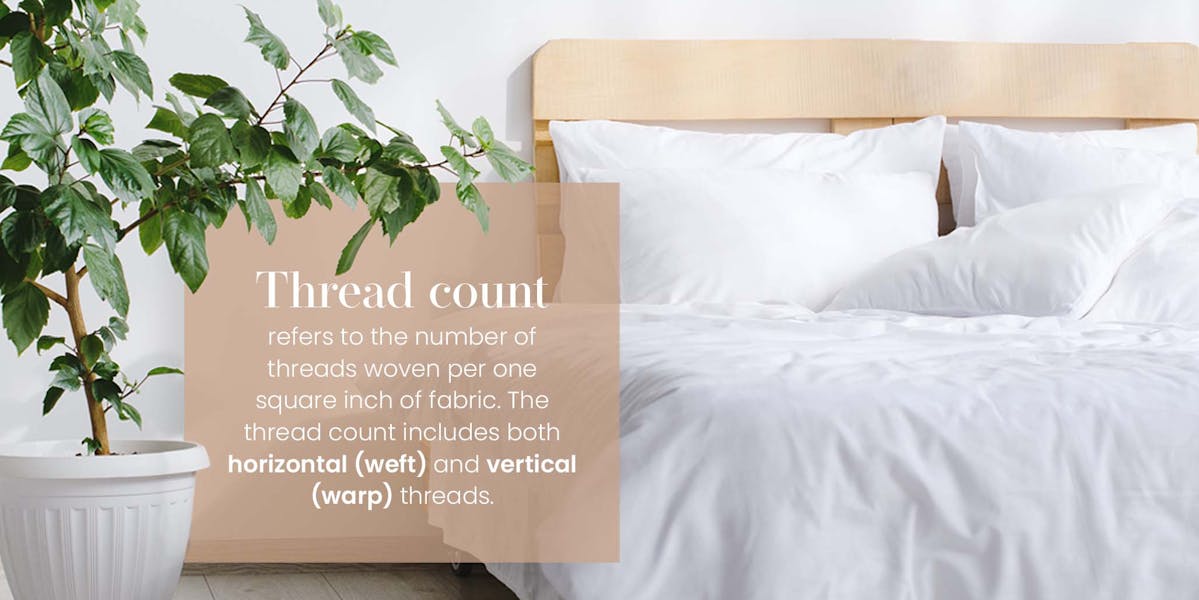
Though many people think a high thread count means a bed sheet set is made with high-quality fabrics, that’s not always true. Let’s take a look at the importance of thread count in your bed sheets.
Does thread count matter for your bed sheets?
Many people believe a higher thread count always means the softest set of sheets. While this is true to a degree, it’s not the only thing that matters.
First of all, it’s important to note that thread count is only really relevant for cotton bedding. For cotton sheets, thread count can range anywhere from 200 to 1,000.
The problem is, you can only get so many threads onto the loom—and in order to increase thread quantity, some manufacturers sacrifice thread quality.
When it comes to other materials, like silk or linen, thread count isn’t an indicator of quality.
Silk sheets are spun with a much thinner thread, so they generally have higher thread counts, while linen sheets are spun with thicker thread, giving them a lower thread count.
Watch this video for more insights on what thread count means and why it’s important:
Ideal thread counts for each bed sheet material
Now that we know high thread count sheets aren’t always high-quality, let’s go over the best thread count for each type of bed sheet material.
Sheet Material Best Thread Count Sateen Cotton Sheets 300 to 600 threads per square inch Percale Cotton Sheets 200 to 400 threads per square inch Silk Sheets 400+ threads per square inch Linen Sheets 80 to 120 threads per square inch Microfiber Sheets Measured in grams per square meter (GSM). Look for microfiber sheets with a GSM of 90 to 120.
Other factors to consider when buying a new set of sheets
Even though it’s important, thread count isn’t the only factor you need to consider before purchasing a higher-quality bed sheet set. You should also take the ply, fiber length, and weave pattern of your sheets into consideration before finalizing your purchase.
Ply
Ply refers to the number of fibers twisted together into a single thread. When it comes to ply, less is definitely better. Two-ply or other multi-ply yarns create fabrics that are coarser, heavier, and most importantly, less durable. Lower-quality sheets are usually made with three-ply or four-ply yarns.
If you’re looking for something soft and light, it’s best to opt for bed sheets made with single-ply yarn.
Fiber length
Staple refers to the length of the cotton fiber. There are two main types of cotton: short-staple and long-staple.
Short-staple cotton is made with shorter fibers, making the fabric less durable and prone to damage like fraying or wrinkling.
Long-staple cotton, on the other hand, is made with longer fibers to make a smoother, stronger, and more durable fabric. Both Pima and Egyptian cotton are great examples of long-staple cotton.
Weave
Weave is another factor you’ll encounter when choosing sheets. Weave isn’t an indicator of quality, but it’s worth paying attention to since different types of weave create fabrics with slightly different properties. Generally, you’ll find sheets with either a percale weave or a sateen weave.
A percale weave (also known as a plain weave) tends to be crisper, lighter, and more breathable. It’s great for hot sleepers.
A sateen weave usually feels silkier and heavier. It’s great for people who tend to sleep cold.
Frequently asked questions
Is thread count the most important factor in choosing sheets?
While thread count is important for cotton sheets, it isn’t all that important for other bed sheet materials. Additionally, there are other factors you should consider like weave, fiber length, and ply.
Are sheets with a higher thread count always high-quality sheets?
No, sheets with a high thread count aren’t always high-quality. Ideal thread count is dependent on the fabric used to make the bed sheets.
Does a higher thread count mean softer sheets?
When it comes to cotton sheets, a higher thread count can mean a softer fabric. However, thread count doesn’t equate to softer sheets for silk and linen fabrics.
Watch this video to learn if a higher thread count really means higher quality:
Find a new set of high-quality sheets with Saatva
Good-quality sheets are the key to feeling comfortable, warm, and cozy in your bed. Saatva is committed to using quality fabrics in their bed sheet sets, duvet covers, and other bedding accessories to provide you with the best night’s sleep possible.
Saatva’s wide range of bed sheets,
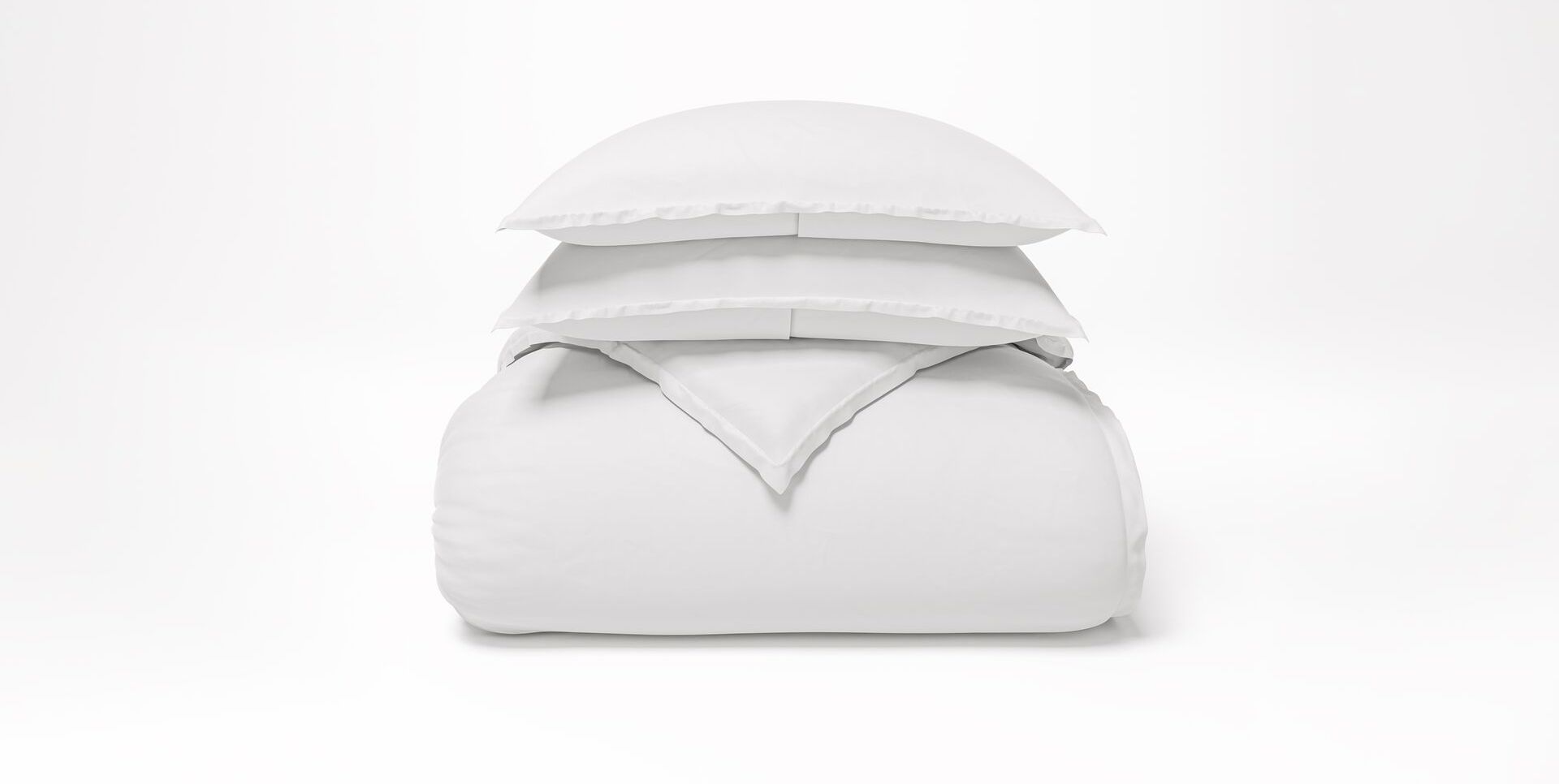
Crisp and cool organic cotton duvet cover and shams
, and other quality bedding accessories are hypoallergenic and breathable. Check out our selection of high-quality sheets and bedding today.





